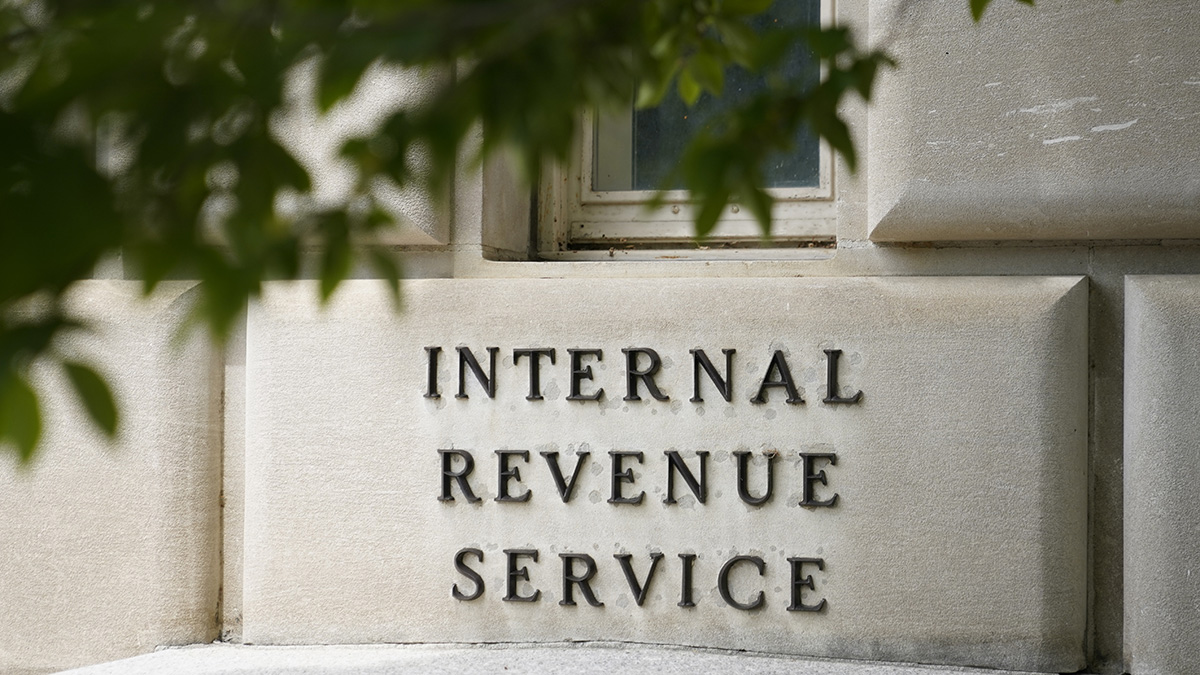The head of the Internal Revenue Service just wrapped up his first year with the agency and he is on the road. He recently made a stop at our NBC10 Boston studios.
“I'm sitting here, getting the word out, as the IRS commissioner urging residents of Massachusetts and beyond to be wary, to be skeptical that scams are on the rise,” he said.
IRS Commissioner Danny Werfel says he is making changes to modernize the agency and reach a younger generation, including enlisting his family pet to help warn about scams.
“We have just now started to put my cat Emmett out there as the expert on tax scams,” he says.
Scroll through the IRS’s Instagram page and you’ll find Emmett the cat. You may be surprised at how colorful and fun it is.
“This is about hitting different generations, of taxpayers,” says Werfel. “How do you talk to them? The way you might talk to a college student, or someone that's new to the workforce, and trying to teach them about the realities of the tax system…versus different communities of taxpayers, like, the elderly population.”
He used his own family as an example.
“My parents, who are in their 80s, have never used an ATM machine,” he says. “And my children, who are in their 20s, have never been in a brick-and-mortar bank. My children, when they engage, they engage right from their phones or their tablets. That's how they get their business done. And we need to build an IRS for that generation of taxpayers where everything you can do, can be done, from, from where you are virtually.”
Virtually, Emmett the cat is warning taxpayers about bad tax advice that’s circulating on social media. People submitting false claims to get a huge refund has been a problem this year.
“We saw a big spike in returns that were filed with exorbitant tax credits or refunds that people weren't eligible for,” he says. “If last year your refund was $300 and now someone is telling you they can get you a refund for $30,000, very likely that this is a scam, and you should avoid it because there is no free money. At the IRS, what we want to do is get you the credits and the refunds you're entitled to, and we want you to pay what you owe and not a penny more.”
Werfel also wants consumers to be aware of scammers impersonating the IRS. He says it’s very rare that a taxpayer would need to make an urgent payment.
“We do not, call you out of the blue, text you or email you when we need to get in touch with the taxpayer, we will send a letter to your home or your business,” he says. “The second thing we won't do is tell you how to pay using a certain method so if someone is telling you to pay with a prepaid debit card, it's not the IRS. And last, we don't threaten immediate legal action. We don't tell you we're going to call on the local police or threaten deportation. If that's happening, it's not the IRS.”
Massachusetts was one of a dozen states that launched the Direct File program this year, allowing some taxpayers to file electronically and directly with the IRS for free. Werfel says amid overwhelmingly positive feedback, direct file is rolling out nationwide next year.
“You're paying your taxes. And that can be a stressful activity,” he says. “What we're trying to do with the IRS is to make that process as least stressful as possible. So, when we put a tool out there that walks you through your taxes in a simple way, and we heard from a lot of people, they were finishing their taxes in under 30 minutes. We even had one taxpayer tell us it was fun.”
He says the IRS is also working on a new color-coded flagging system to help combat those impersonation scams. It would allow taxpayers to go to their online account and quickly see whether the IRS is trying to reach them. They hope to have that up and running by the next filing season.




